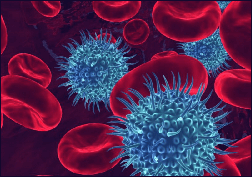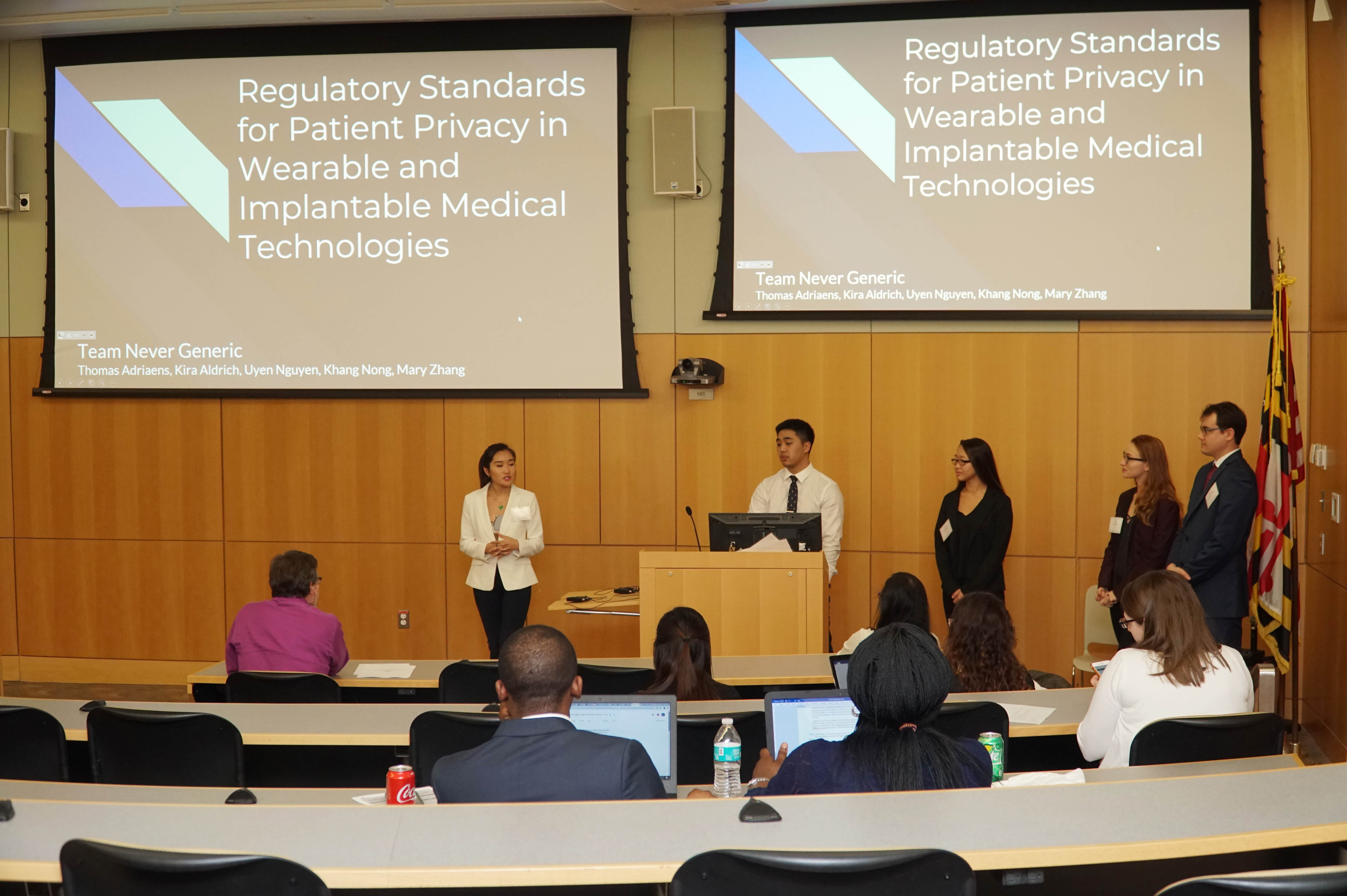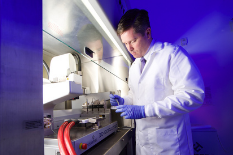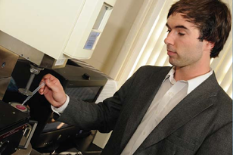News Story
DoD Awards $1M to Develop Portable Medical Sensors
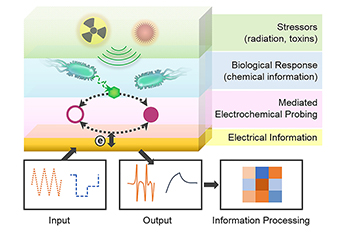
Model for redox-based bio-electronic communication in a portable device
Researchers at the Robert E. Fischell Institute for Biomedical Devices and the Institute for Bioscience and Biotechnology Research (IBBR) received $1 million from the Defense Threat Reduction Agency (DTRA, part of the U.S. Department of Defense) to advance their efforts to develop wearable sensors that measure biochemical information to diagnose disease. Fischell Institute faculty member and IBBR Fellow Gregory Payne is principal investigator on the award.
Accessing and analyzing chemical information is the basis of much biological research and biomedical diagnostic testing. A conventional approach involves studying a biological system, identifying an important chemical, and then developing a way to measure it.
Payne and his colleagues are turning this approach upside down. They propose to start with measurements that can be made quickly on a deployable device. From among those types of measurements, they suggest determining which datasets give valuable information that can be used for basic research and diagnostic development.
Reduction-oxidation (redox) reactions involve the transfer of electrons from one molecule to another. Chemical redox reactions are used by cells for a wide range of biological functions. And, since electronic devices are also based on the movement of electrons, "communication" between biology and a device is possible.
"We believe that redox state is an example of an easily measured modality with the potential to give us access to systems-level biological information," Payne explains. "The ultimate goal is to be able to determine a person's health status from a simple and rapid redox measurement, whether they are in a physician's office, at home, or on the battlefield."
The research team plans to collect redox measurements from a variety of biological systems and look for patterns that reveal stable and perturbed states. They will also continue to develop sensors that directly connect biology to electronic circuits. Both of these objectives will be informed by exploration of cellular mechanisms of redox detection and response.
The project is an ongoing collaboration between Payne and Fischell Institute Director and IBBR Fellow William E. Bentley (Professor, Fischell Department of Bioengineering), and researchers at the U.S. Naval and Army Research Laboratories.
"Developing biosensors to address medical challenges is an important pillar of IBBR's biomolecular engineering program," says IBBR Director Thomas Fuerst. "We are pleased to continue this collaboration with the Fischell Institute to advance our understanding of biological redox and to translate that into an innovative biomedical device."
Published July 16, 2019



